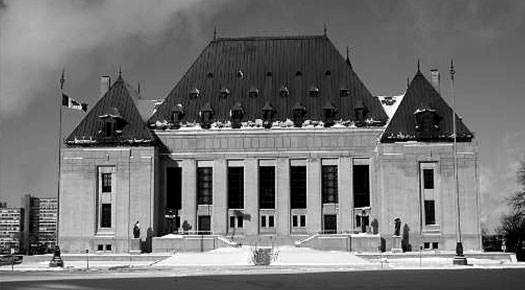
Cities in Canada must ban prayer during council meetings, ruled the Supreme Court of Canada last week. According to the court, such prayers violate Canadians’ freedom of religion and conscience. As part of a unanimous decision and bearing in mind the neutrality of the state, all nine judges on the panel agreed that prayers should be disallowed at council meetings in the future.
The case submitted to the highest court of law in Canada pitted the mayor of Saguenay, a small town that is located 124 miles away from Quebec City, against the Quebec Lay Movement and Alain Simoneau. In 2006, Simoneau had filed a complaint against the tradition of praying at the start of council meetings, alleging the practice infringes upon his right to freedom of conscience and religion. A human rights tribunal in Quebec agreed with him and ordered Mayor Jean Tremblay and his city to call off the tradition and pay the complainant $30,000 in compensation.
You can watch the video here
In 2013 however, the court of appeals in Quebec ruled in favour of Saguenay holding on to its prayer tradition. Yet, the Supreme Court of Canada recently overturned that ruling and now, the decision not only applies to Saguenay but also to every other city and town across Canada and Quebec.
During the ruling, the court said that the freedom of conscience and religion provisions of the Canadian Charter of Rights and Freedoms and the Quebec Charter “must be given a generous and expansive interpretation … to ensure that those to whom these charters apply enjoy the full benefit of the rights and freedoms.”
Major cities, including Calgary and Ottawa, have said that they will temporarily ban prayers during council meetings while assessing the eventual outcome of the court’s ruling.
Tremblay is one of the few politicians in Quebec who talks openly about his religious stance. On April 16, he expressed his disappointment with the Supreme Court’s ruling and said even though he himself cannot oppose the judiciary, residents of Quebec should go ahead and voice their opposition to the banning the prayer tradition.
Bishop Andre Rivest from Chicoutimi, the diocese in which Saguenay is situated, said he was not appalled by the court’s ruling.
“I supported the mayor, so I’m obviously disappointed. I’m the pastor of a region where about 95 percent of the population is Catholic, so praying is in our population’s nature,” he said.
Despite the Quebec Lay Movement heralding the court’s decision as a major victory, Sebastien Beaulac, constitutional specialist at University of Montreal, emphasized on the main argument of the ruling, which was the significance of the neutrality of state.
“Here, the Supreme Court sets the record straight and takes into account Canadian reality as it is. It is not a decision against Catholicism, since its content might be extrapolated to all religions. It is the idea of a public office not being associated with any religion that is the backbone of the ruling.
Tremblay can still be Catholic: However, he can’t use his position to promote his faith,” he said.
Photo Credits: Wikimedia
